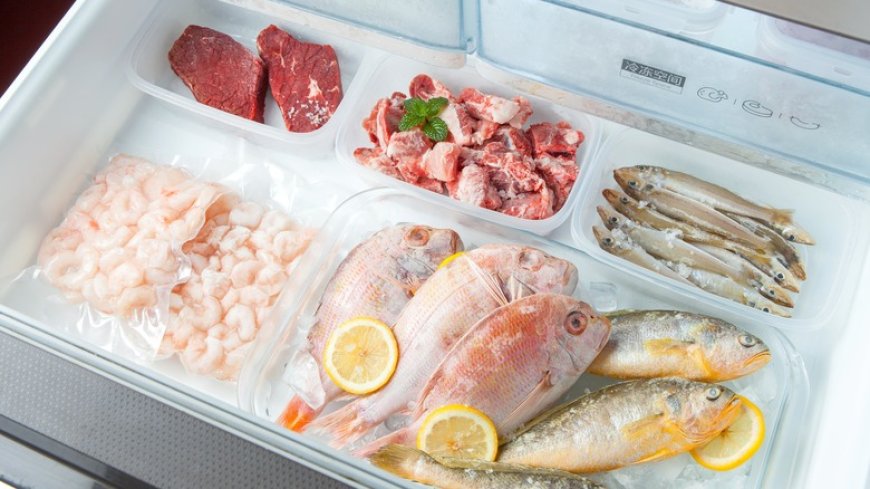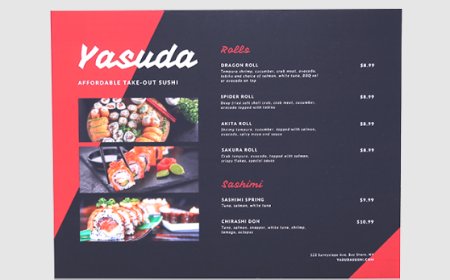How to Incorporate More Fresh Food into Your Daily Diet
Fresh food is full of nutrients that help your body stay strong and healthy. When you eat fresh fruits, vegetables,

In todays busy life, its easy to choose fast food or processed snacks. We often eat in a rush, picking foods that are quick but not always healthy. Fresh food, like fruits, vegetables, whole grains, and lean meats, gives us the vitamins, minerals, and fiber our bodies need. Eating more fresh food can help us feel better, have more energy, and even prevent sickness. The good news is that adding fresh food to your daily meals is not hard. With a few simple steps, you can start eating better today.
Why Fresh Food Is Important
Fresh food is full of nutrients that help your body stay strong and healthy. When you eat fresh fruits, vegetables, and other whole foods, you get:
-
More energy to stay active throughout the day
-
Better digestion and less stomach discomfort
-
Clearer skin and healthier hair
-
A stronger immune system to fight off illness
-
A lower risk of diseases like heart problems or diabetes
Unlike processed foods, fresh foods dont have artificial colors, preservatives, or unhealthy fats. Eating fresh food means youre choosing natural and clean fuel for your body.
Start Your Day with a Fresh Breakfast
Breakfast is the first and most important meal of your day. Try to make it fresh and full of nutrients. Instead of sugary cereal or packaged snacks, choose:
-
A smoothie with bananas, spinach, berries, and milk
-
Whole grain toast with fresh avocado
-
Oatmeal topped with sliced apples, nuts, or raisins
-
Boiled eggs with a side of cucumber and tomatoes
Even small changes, like adding a fresh fruit to your meal, help you start the day right.
Plan Your Grocery Shopping
Planning ahead makes it easier to eat fresh food. Before you go shopping, make a list of fruits, vegetables, and fresh meats you want for the week. Try to:
-
Shop the outer aisles of the grocery store (where fresh foods are usually found)
-
Visit a farmers market for seasonal fruits and vegetables
-
Buy only what you need to avoid food waste
Seasonal food is usually fresher, cheaper, and tastes better. For example, in summer, you can enjoy berries, peaches, and corn. In winter, look for carrots, cabbage, and sweet potatoes.
Cook at Home More Often
Cooking at home helps you eat fresher and healthier meals. You know exactly whats in your food, and you can avoid unhealthy ingredients. Here are some simple meals you can try:
-
A veggie stir-fry with rice or noodles
-
Grilled chicken or fish with a side of salad
-
Fresh vegetable soup with beans and herbs
-
Whole wheat pasta with chopped tomatoes and basil
If you dont have time to cook every day, try meal prepping once or twice a week. You can chop vegetables, cook grains, or marinate meats in advance.
Keep Fresh Snacks Ready
When you feel hungry between meals, its easy to reach for chips or cookies. But fresh snacks are just as tasty and much healthier. Keep these snacks ready in your fridge:
-
Carrot and cucumber sticks
-
Washed grapes, strawberries, or apple slices
-
A boiled egg with a pinch of salt
-
Cherry tomatoes or a handful of nuts
Pack these snacks in small containers so you can take them to work or school.
Add Greens to Your Meals
Green vegetables are rich in fiber, iron, and vitamins. Try to add greens like spinach, kale, lettuce, or arugula to your daily meals. Heres how:
-
Add spinach to your smoothies or omelets
-
Mix chopped greens into your pasta or rice dishes
-
Serve every meal with a small side salad
-
Use lettuce instead of bread for wraps
The more greens you eat, the better your digestion and energy levels.
Replace Processed Items with Fresh Ones
You can make easy swaps to add more fresh food to your diet. For example:
-
Instead of boxed juice, eat whole fruits
-
Use fresh tomato slices instead of ketchup
-
Replace frozen dinners with homemade meals
-
Choose plain yogurt with fresh fruit instead of flavored yogurts
These simple swaps reduce your sugar and salt intake and increase your nutrients.
Drink More Water with Fresh Additions
Drinking water helps your body work well and supports healthy digestion. You can make your water more fun and fresh by adding:
-
Lemon or lime slices
-
Cucumber and mint
-
Orange slices or fresh berries
This will help you drink more water and stay hydrated throughout the day.
Get the Whole Family Involved
Eating fresh food becomes easier when the whole family joins in. Involve your kids or family members in:
-
Choosing fruits and vegetables at the store
-
Washing and chopping food at home
-
Helping you cook simple meals
When eating fresh food becomes a shared activity, it feels fun and rewarding. It also teaches children healthy habits from a young age.
Take One Step at a Time
You dont have to change your whole diet in one day. Start small. Maybe add one fruit to your breakfast or eat a salad with lunch. Every little step counts. Over time, your habits will improve, and your body will thank you.
Final Thoughts
Incorporating more fresh food into your daily diet does not have to be difficult. With simple choices, small changes, and a little planning, you can enjoy meals that are not only tasty but also full of health benefits. Fresh food helps you feel better, think more clearly, and stay active. So why wait? Start today, one fresh bite at a time.










































